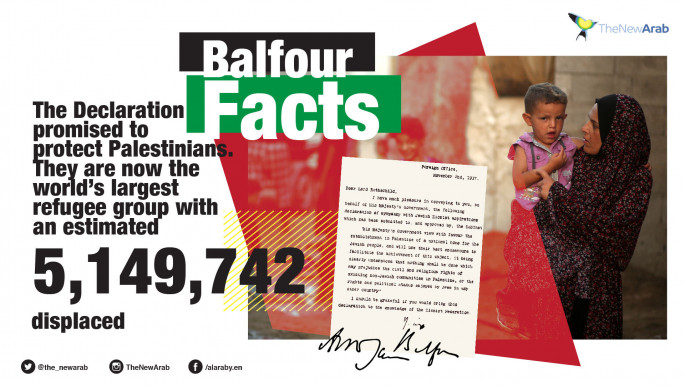Iran threat forcing Arab-Israel alliances, says Netanyahu
"Iran is devouring one nation after the other," Netanyahu said at Chatham House, the Royal Institute of International Affairs think-tank in London on Friday.
"It is doing so either by direct conquest or by using proxy. They took over Lebanon, Yemen... they try to do the same thing with Iraq, in Syria.
"The good news is that the other guys are getting together with Israel as never before. It is something that I would have never expected in my lifetime."
He said Israel was working "very hard" to establish an effective alliance with "the modern Sunni states" to condemn and counter Iranian aggression.
"I think that actually has a great promise of peace" for the region, he said.
He said the Middle East was witnessing "the emergence of a battle between the Islamists and the modernists", provoking a "new alliance between Israel and Islamic states".
Israel has long viewed Iran as its number one enemy, while Sunni Arab nations such as Saudi Arabia are regional rivals of the Shia country.
Since Israel was established in 1948, only two Arab states - Egypt and Jordan - have signed peace deals with the country and established full diplomatic relations.
The United States has sought to promote links between Israel and the Arab world, with President Donald Trump's administration hoping to leverage regional interests to reach an Israeli-Palestinian peace deal.
Meanwhile, Netanyahu said the 2015 Iran nuclear deal reached with the international community does not go far enough to prevent Tehran from getting a nuclear weapon.
The agreement "basically says within X years of time, not much - and times goes quickly - you will have unlimited capacity to enrich uranium," he said.
The greatest danger is not that Tehran would violate the deal, "but that Iran would keep it".
He demanded tough sanctions be put in place and inspections of Iranian military sites.
Turning to relations with Washington, he said ties were stronger since the election of President Donald Trump.
He said he had "very strong" disagreements with Trump's predecessor Barack Obama, saying the former US president saw Iran as part of the solution to problems in the Middle East, while he saw it as the main problem.
Netanyahu said he thought Trump saw Iran as the problem.
"And that a strategical and important shift that we appreciate," he said.
Netanyahu is in the UK for events marking the centenary of the 1917 Balfour Declaration, the British statement which helped head to the creation of the state of Israel.
 |



